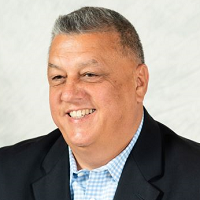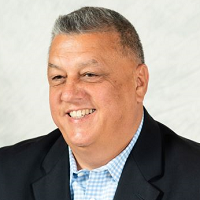Rethinking Income When You Retire: No Paycheck, No Problem
When you retire, you'll need to adjust to the reality of depending on assets instead of a regular paycheck. For that, you'll need a new financial strategy.


Profit and prosper with the best of Kiplinger's advice on investing, taxes, retirement, personal finance and much more. Delivered daily. Enter your email in the box and click Sign Me Up.
You are now subscribed
Your newsletter sign-up was successful
Want to add more newsletters?

Delivered daily
Kiplinger Today
Profit and prosper with the best of Kiplinger's advice on investing, taxes, retirement, personal finance and much more delivered daily. Smart money moves start here.

Sent five days a week
Kiplinger A Step Ahead
Get practical help to make better financial decisions in your everyday life, from spending to savings on top deals.

Delivered daily
Kiplinger Closing Bell
Get today's biggest financial and investing headlines delivered to your inbox every day the U.S. stock market is open.

Sent twice a week
Kiplinger Adviser Intel
Financial pros across the country share best practices and fresh tactics to preserve and grow your wealth.

Delivered weekly
Kiplinger Tax Tips
Trim your federal and state tax bills with practical tax-planning and tax-cutting strategies.

Sent twice a week
Kiplinger Retirement Tips
Your twice-a-week guide to planning and enjoying a financially secure and richly rewarding retirement

Sent bimonthly.
Kiplinger Adviser Angle
Insights for advisers, wealth managers and other financial professionals.

Sent twice a week
Kiplinger Investing Weekly
Your twice-a-week roundup of promising stocks, funds, companies and industries you should consider, ones you should avoid, and why.

Sent weekly for six weeks
Kiplinger Invest for Retirement
Your step-by-step six-part series on how to invest for retirement, from devising a successful strategy to exactly which investments to choose.
The way you receive income changes in retirement. Instead of earning a paycheck every other week from an employer, a large portion — if not all — of your income in retirement will be derived from your assets. But if you don’t change your financial strategy, you could risk outliving your savings.
Step No. 1: Create an income plan
The first step in this transition requires you to assess your financial situation. List your assets, including savings, investments, real estate and retirement accounts. Then determine your current and future living expenses, considering inflation and health care costs, and calculate those expenses with guaranteed income sources including Social Security, pensions and 401(k) and IRA savings.
Once you’ve got an idea of your financial situation, you’ll want to create an income plan. Organize your different sources of income into the following three categories: guaranteed income, investment income and portfolio withdrawals. Guaranteed income is the funds you’ll receive from Social Security, pensions and annuities. Investment income refers to dividends, interest and any rental income. Your portfolio withdrawals will come from your IRA, 401(k) and any other taxable accounts.
From just $107.88 $24.99 for Kiplinger Personal Finance
Become a smarter, better informed investor. Subscribe from just $107.88 $24.99, plus get up to 4 Special Issues

Sign up for Kiplinger’s Free Newsletters
Profit and prosper with the best of expert advice on investing, taxes, retirement, personal finance and more - straight to your e-mail.
Profit and prosper with the best of expert advice - straight to your e-mail.
Step No. 2: Create a withdrawal strategy
The other component of your plan should include withdrawal strategies for these accounts. Consider using the 4% rule as a starting point for annual withdrawals from retirement accounts and opt for dynamic withdrawals to adjust based on market conditions.
With a plan in place, you can now optimize your asset allocation. When it comes to your portfolio, it’s important to keep it diverse by maintaining a mix of stocks, bonds and cash to balance growth and stability. You’ll also want to increase liquidity by ensuring you have access to one to three years’ worth of living expenses in cash or short-term bonds to cover immediate needs. It’s also important to adjust your risk tolerance by shifting to more conservative allocations when needed to reduce volatility, yet maintain growth potential as you’re nearing or entering retirement.
When transitioning from earned income to retirement income, minimizing your tax burden becomes even more important. You must therefore plan how you’re going to withdraw funds from your various accounts. Prioritize making withdrawals from your tax-advantaged accounts, such as Roth IRAs and health savings accounts (HSAs). You also need to be aware of required minimum distributions (RMDs), particularly for traditional IRAs. For traditional IRAs, you must start making withdrawals once you turn 73. As for your 401(k) or profit-sharing plans, you can delay taking RMDs until the year you retire, unless you’re a 5% owner of the business sponsoring the plan, the IRS states.
As for Roth IRAs and designated Roth accounts, RMDs aren’t required until you die. Once you die, your beneficiaries will be required to take these distributions, complying with the IRS’ guidelines.
Another tax-efficient strategy is to harvest capital gains, by taking advantage of lower tax rates on capital gains in low-income years.
Step No. 3: Monitor and adjust
If you’re looking for ways to grow your income in retirement, look for opportunities to make passive income. You can invest in dividend stocks, get involved in real estate by investing in rental properties or REITs or purchase annuities.
Once you reach retirement, it’s important to monitor these strategies and make adjustments as needed. Keep your expenses in check, especially in the early years of your retirement, and make sure your investments are keeping up with your financial goals. Market changes can also impact your financial situation and may require you to adjust withdrawals or asset allocations. A financial adviser can help you navigate these challenges, while helping you create a plan that suits your specific needs.
These independent views and opinions are expressed are those of Joel Russo and are not necessarily the opinions of CoreCap Investments. Securities sold through CoreCap Investments, LLC, a registered broker-dealer and member FINRA/SIPC.
Related Content
- Which Retirement Accounts Should You Withdraw From First?
- What You Need to Know About Calculating RMDs for 2025
- Ways to Keep More of Your Money in Retirement
- Retirees: Make Your Money Last With Stable Income Strategies
- One Simple Tip for Planning the Three Stages of Retirement
Profit and prosper with the best of Kiplinger's advice on investing, taxes, retirement, personal finance and much more. Delivered daily. Enter your email in the box and click Sign Me Up.

Joel Russo is a New Jersey native and has been in the financial services industry for more than 35 years. He is dedicated to helping his clients reap the rewards of a well-planned retirement. Unlike many financial professionals, Joel specializes in the retirement market, "the over-50 crowd” and has dedicated his practice to educating this community with workshops on topics relating to income from the right sources, taxes in retirement, RMD pitfalls and legacy planning.
-
 The New Reality for Entertainment
The New Reality for EntertainmentThe Kiplinger Letter The entertainment industry is shifting as movie and TV companies face fierce competition, fight for attention and cope with artificial intelligence.
-
 Stocks Sink With Alphabet, Bitcoin: Stock Market Today
Stocks Sink With Alphabet, Bitcoin: Stock Market TodayA dismal round of jobs data did little to lift sentiment on Thursday.
-
 Betting on Super Bowl 2026? New IRS Tax Changes Could Cost You
Betting on Super Bowl 2026? New IRS Tax Changes Could Cost YouTaxable Income When Super Bowl LX hype fades, some fans may be surprised to learn that sports betting tax rules have shifted.
-
 Stocks Sink With Alphabet, Bitcoin: Stock Market Today
Stocks Sink With Alphabet, Bitcoin: Stock Market TodayA dismal round of jobs data did little to lift sentiment on Thursday.
-
 Your Adult Kids Are Doing Fine. Is It Time To Spend Some of Their Inheritance?
Your Adult Kids Are Doing Fine. Is It Time To Spend Some of Their Inheritance?If your kids are successful, do they need an inheritance? Ask yourself these four questions before passing down another dollar.
-
 The 4 Estate Planning Documents Every High-Net-Worth Family Needs (Not Just a Will)
The 4 Estate Planning Documents Every High-Net-Worth Family Needs (Not Just a Will)The key to successful estate planning for HNW families isn't just drafting these four documents, but ensuring they're current and immediately accessible.
-
 Love and Legacy: What Couples Rarely Talk About (But Should)
Love and Legacy: What Couples Rarely Talk About (But Should)Couples who talk openly about finances, including estate planning, are more likely to head into retirement joyfully. How can you get the conversation going?
-
 How to Get the Fair Value for Your Shares When You Are in the Minority Vote on a Sale of Substantially All Corporate Assets
How to Get the Fair Value for Your Shares When You Are in the Minority Vote on a Sale of Substantially All Corporate AssetsWhen a sale of substantially all corporate assets is approved by majority vote, shareholders on the losing side of the vote should understand their rights.
-
 Dow Leads in Mixed Session on Amgen Earnings: Stock Market Today
Dow Leads in Mixed Session on Amgen Earnings: Stock Market TodayThe rest of Wall Street struggled as Advanced Micro Devices earnings caused a chip-stock sell-off.
-
 We're 62 With $1.4 Million. I Want to Sell Our Beach House to Retire Now, But My Wife Wants to Keep It and Work Until 70.
We're 62 With $1.4 Million. I Want to Sell Our Beach House to Retire Now, But My Wife Wants to Keep It and Work Until 70.I want to sell the $610K vacation home and retire now, but my wife envisions a beach retirement in 8 years. We asked financial advisers to weigh in.
-
 How to Add a Pet Trust to Your Estate Plan: Don't Leave Your Best Friend to Chance
How to Add a Pet Trust to Your Estate Plan: Don't Leave Your Best Friend to ChanceAdding a pet trust to your estate plan can ensure your pets are properly looked after when you're no longer able to care for them. This is how to go about it.